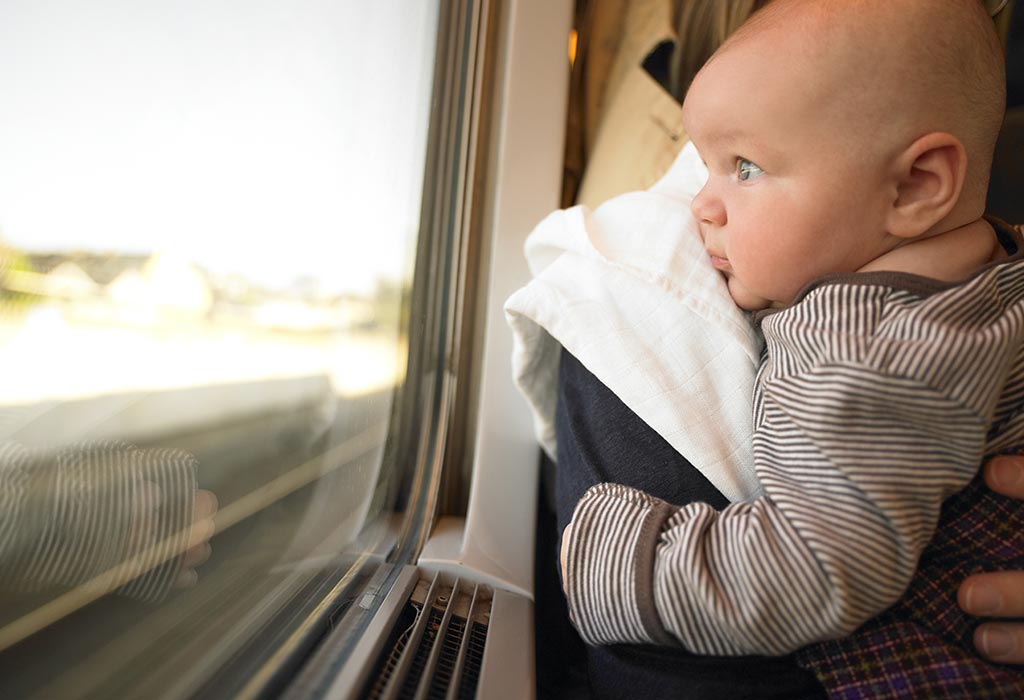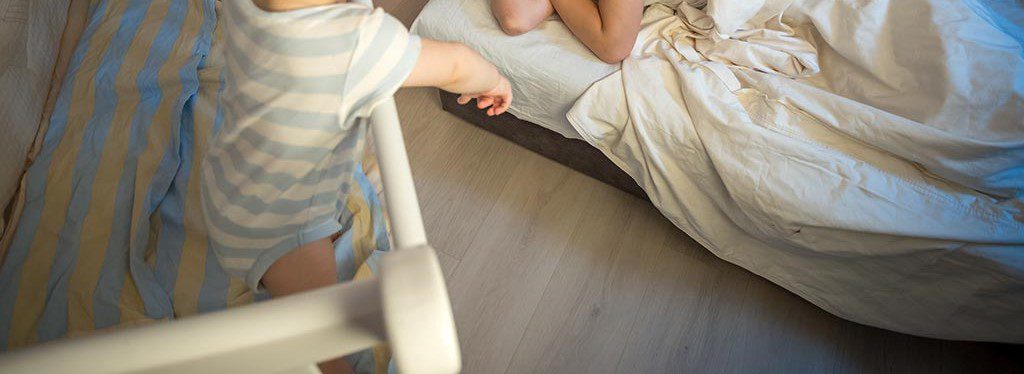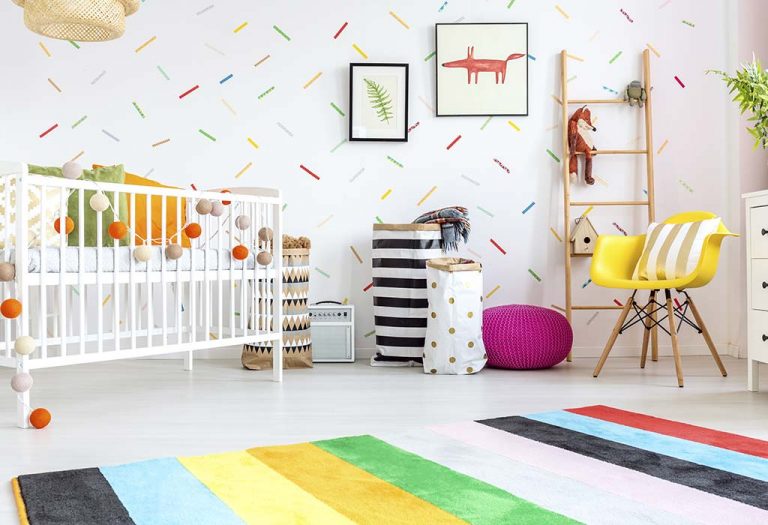Burping occurs because babies have small tummies, and when they breastfeed, they tend to swallow a lot of air, which makes them uncomfortably full.
It is essential to know how to burp a baby to reduce potential stomach pain. Burping a fragile infant is scary for any first-time parent.
You need to position them correctly to support their head, but also know where to pat them to release air. Fear not – we're here with some helpful guidelines, tips, and tricks.
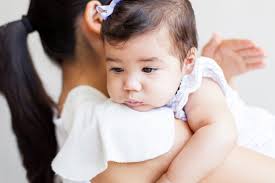
Some tips for burping your baby that you can follow:
Bring a piece of cloth: Burping can lead to spitting up, which can ruin your clothing. Always keep a burp cloth between you and your baby. It's also a good idea to bring an extra supply to wipe up any milk that might reappear.
Focus on the left side: When burping, focus your actions on the left center of the back. Your baby's tummy is around this area, so you'll have a better chance of triggering a burp.
Be more assertive: It will depend on your baby. Some babies burp easily, while others need a firmer hand.
Ways to burp a baby
To burp a baby, place the baby on the chest or stomach.
The external abdominal muscles are more relaxed than when sitting, allowing more air to be expelled from the stomach. Then gently place the baby on your chest, resting his chin on your shoulder.
If your baby is small, you can place him under your chest for better support. This position may not be successful, but it is an excellent way to start if you are feeling anxious.
You can use one hand to support him, while gently massaging or patting him with the other.
face down
The outer abdominal muscles are relaxed, more air is released, and the baby's head can be turned to the side so that it rests on your lap.
Since your baby may spit up a little more while burping in this position, an extra cloth may be needed.
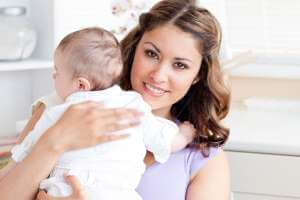
There is no need to worry about the amount of milk that appears, as it is much less than it appears, and usually does not lead to weight gain.
If your baby is older than 6 months, you can place him on your lap for a while and pat his back. This way, you will put a little pressure on his stomach, which may help him burp.
In practice, most infants over 6 months of age no longer need to be burped; they seem to do it on their own with normal infant activity and movement (i.e., rolling over, attempts to sit up, tummy time).
Do you need: Newborn babies not crying, is there a danger to the child?
Walking
Once your baby has better head control, this is an alternative method you can try. Carry your baby by holding him in front of you with him facing your tummy. His back will be against your stomach.
Place one hand under his bottom, with the other across his stomach. The arm across his stomach will apply gentle pressure, helping to release the burp.
Walk around the room with soft, soothing movements to release the burp. Place a cloth over your lap, a bib over your baby, or both. This way, you're ready to catch any spit-up.
How to burp a baby while he is sleeping
Babies often fuss while eating, whether breastfeeding or bottle-feeding, sucking movements while filling their tummy is the best recipe for a baby to sleep.
It is especially common during the night that their bodies are already telling them to sleep. However, even if your baby has fallen asleep, for some it is necessary to burp them before putting them down. Burping your sleeping baby is not much different from burping them while awake.
The hard part, however, is not waking them up – you have to be very slow and gentle. Some positions aren't ideal for burping a sleeping baby. Sitting upright on your lap is more likely to wake them up.
The best positions are when your baby is asleep on your chest or resting on your forearm. Place him on your chest and rub his back to release the burp. If you are sitting in a chair while breastfeeding,
You can try the face down method, but it may be difficult to put it back on.
Do you need: Sore throat, causes, symptoms, prevention and treatment?
Why is burping your baby important after breastfeeding?
Burping your baby is one of the essential parts of early parenting. Young babies aren't yet self-sufficient, like older children and adults. They don't have as much control over their bodies and need help releasing gas.
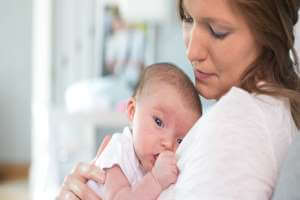
When your baby eats, it's common for them to swallow a large amount of air. This air then travels to the stomach, where it creates air bubbles that fill your baby's tummy. These air bubbles can make your baby uncomfortable and give them a feeling of fullness without even finishing their meal.
Since your baby is still hungry, but feels uncomfortably full, he can become fussy, and even irritable. This is why burping is an essential part of mealtime with babies.
Not all babies need frequent burping. Some are fine with a little burping. You'll discover early what's best for your baby.
How often should a baby be burped?
The amount of burping your baby needs depends mainly on whether you are bottle-feeding or breastfeeding.
When breastfeeding, try burping your baby when switching to the other breast. If your baby swallows excessive air, he or she may refuse to continue breastfeeding.
Burping while changing breasts will allow your little one to finish their feed without feeling uncomfortable, and then once they're finished, they should be burped again.
If your newborn prefers to breastfeed from only one breast, stop feeding him mid-feed. With bottle-fed babies, whether they are breastfed or formula-fed.
Try to burp them at least once per feeding – do it halfway through the feeding. If your baby gets fussy or takes longer to finish, try burping them more often.
Formula-fed babies tend to be fussier than breastfed babies. It is not clear whether this is due to increased air swallowing during feedings or a component of the formula itself.
Do you need: How to make your baby sleep through the night?
How long does it take for a baby to burp?
It depends on your baby and the burp, but it usually takes one to two minutes. You may notice that sometimes, the burp will come out as soon as your baby sits up. Other times, you need a little more patience.
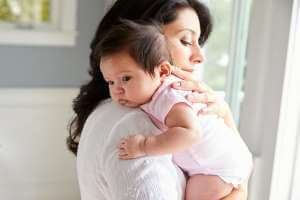
If your baby frequently shows signs of fussiness and seems uncomfortable, consult their pediatrician. They may have excessive gas and need some extra help to relieve it.
It is not uncommon for babies with bad reflux, called gastroesophageal reflux disease (GERD), to refuse to sleep for 30 minutes after a meal.
This is different from normal “spitting up” where the baby is happy. Painful acid reflux can be frustrating if your baby becomes irritable due to tiredness.
If you feel your child is experiencing symptoms of gastroesophageal reflux, consult your pediatrician.
the source : How To Burp A Baby (Baby Burping Tricks & Tips)
